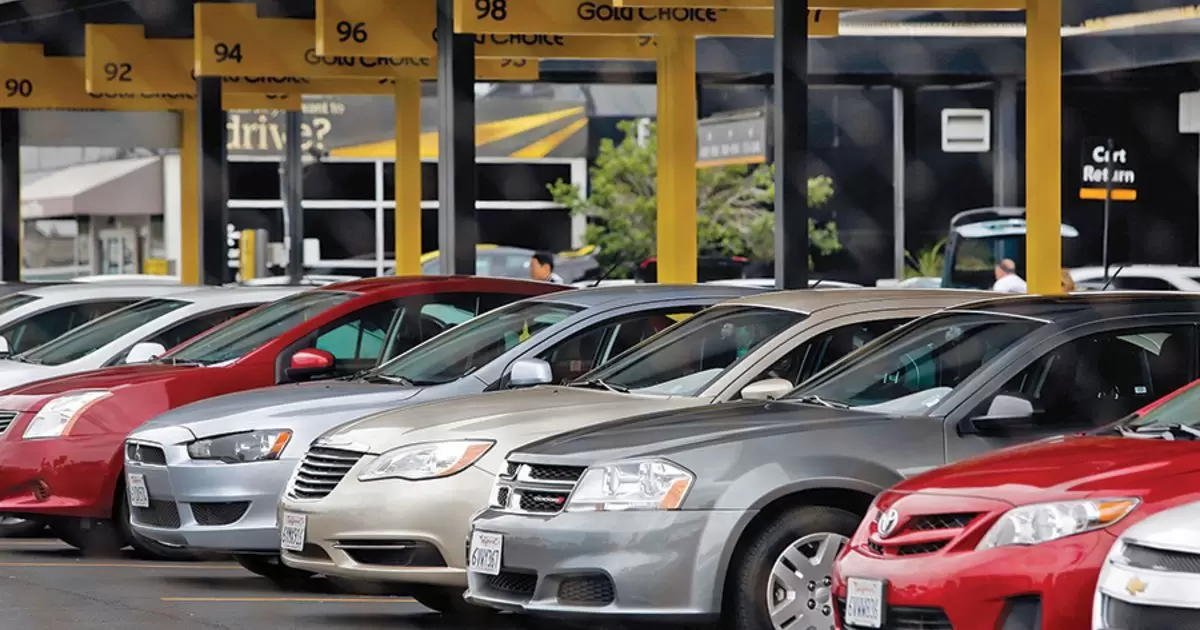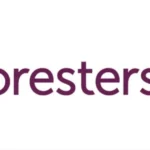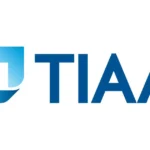Introduction
“Starting a rental car business involves market research, creating a detailed business plan, and ensuring legal compliance.”
Starting a rental car business involves setting up a company that rents vehicles to customers. This includes buying or leasing cars, managing customer bookings, and ensuring vehicles are well-maintained. You’ll need to handle legal requirements, such as licenses and insurance, and create a business plan for success. Understanding the market demand and competition is key to thriving in this industry.
Ready to get started? Begin by researching the market and drafting a solid business plan. Invest in quality vehicles, secure the necessary licenses, and focus on excellent customer service to stand out.
For more details on how to launch your rental car business, explore resources on market research, legal requirements, and operational tips. These will help guide you through every step of starting and managing your rental car business effectively.
Market Research and Analysis

Market research is the first step in starting a rental car business. It helps you understand the demand for rental vehicles and evaluate the competitive landscape. Begin by:
- Identifying Target Customers: Determine who will be your primary customers. Are they tourists, business travelers, or local residents needing a temporary vehicle?
- Analyzing Local Competition: Look at other rental car businesses in your area. Study their pricing, services, and customer feedback to identify gaps and opportunities.
- Assessing Market Demand: Evaluate how many potential customers are in your area and what types of vehicles they might need. This will help you tailor your fleet to meet local demand.
Business Plan Development
A solid business plan is essential for guiding your rental car business and securing funding. Include the following in your plan:
- Executive Summary: Summarize your business concept, including your mission, vision, and goals.
- Market Analysis: Provide detailed information about your target market, competition, and industry trends.
- Operational Plan: Outline how your business will operate, including details on vehicle management, staffing, and daily operations.
- Financial Projections: Present estimates for startup costs, revenue, expenses, and profitability.
- Marketing Strategy: Describe how you will attract and retain customers through advertising, promotions, and brand building.
Legal Requirements and Licenses
Meeting legal requirements is crucial for operating your rental car business legally. This includes:
- Business Registration: Register your business name and select a legal structure (e.g., LLC, corporation) that suits your needs.
- Licenses and Permits: Obtain the necessary local and state licenses to operate a rental car business. This may include a business license, a vehicle rental license, and any additional permits required by your municipality.
- Insurance: Secure comprehensive insurance coverage for your vehicles and liability insurance to protect against accidents and other risks.
How To Start A Lawn Business
Choosing a Business Location
The right location can greatly impact the success of your rental car business. Consider:
- Proximity to High Traffic Areas: Choose a location near airports, hotels, or major tourist attractions to attract more customers.
- Accessibility: Ensure that your location is easily accessible and has adequate parking for both customers and your fleet.
- Facility Requirements: Evaluate whether the location can accommodate your fleet, office space, and any additional facilities you may need for vehicle maintenance and customer service.
Acquiring Vehicles
The vehicles in your fleet are the core of your rental car business. Key considerations include:
- Vehicle Selection: Choose vehicles that meet the needs of your target market. Consider offering a mix of economy, luxury, and SUV models.
- Leasing vs. Purchasing: Decide whether to lease or purchase your vehicles. Leasing can reduce upfront costs but may have mileage limits, while purchasing requires a higher initial investment but provides long-term benefits.
- Maintenance Plans: Implement regular maintenance schedules to ensure that all vehicles are in good working condition and meet safety standards.
Setting Up Operations
Efficient operations are vital for a smooth-running rental car business. Focus on:
- Hiring Staff: Recruit and train staff for roles such as customer service, vehicle maintenance, and administrative tasks. Good customer service can significantly enhance your business’s reputation.
- Developing Procedures: Create clear procedures for vehicle rentals, returns, and inspections. Ensure staff are familiar with these procedures to maintain consistency.
- Rental Management Software: Invest in rental management software to streamline booking processes, manage vehicle availability, and handle customer data efficiently.
Marketing and Branding
A strong marketing strategy and brand identity will help attract and retain customers. Consider:
- Creating a Brand Identity: Develop a logo, tagline, and visual style that reflect your business values and appeal to your target audience.
- Online and Offline Advertising: Use social media, search engine optimization (SEO), and local advertising to increase your visibility and attract customers.
- Customer Reviews and Referrals: Encourage satisfied customers to leave positive reviews and refer your business to others. Word-of-mouth recommendations can be a powerful marketing tool.
Pricing Strategy

Setting the right prices is essential for balancing customer attraction and profitability. Focus on:
- Competitive Pricing: Research competitors’ rates and set prices that are attractive yet profitable. Consider offering competitive rates without compromising on service quality.
- Discounts and Promotions: Implement special deals, discounts, and loyalty programs to attract new customers and encourage repeat business.
- Dynamic Pricing: Adjust prices based on demand, seasonality, and vehicle availability to optimize revenue and meet market conditions.
Customer Service
Exceptional customer service can differentiate your business from competitors and foster customer loyalty. Focus on:
- Training Staff: Ensure your staff provides friendly, efficient, and knowledgeable service to enhance the customer experience.
- Handling Complaints: Develop procedures for addressing and resolving customer complaints quickly and professionally. Effective resolution can turn a dissatisfied customer into a loyal one.
- Building Relationships: Engage with customers to build long-term relationships and encourage repeat business. Personal touches and follow-ups can enhance customer satisfaction.
Technology Integration
Leveraging technology can streamline your operations and improve customer experience. Consider:
- Booking Systems: Implement online booking systems that allow customers to reserve vehicles easily and manage their bookings.
- Mobile App: Develop a mobile app for convenient booking, managing reservations, and accessing customer support.
- Tracking Systems: Use GPS and tracking technology to monitor vehicle locations, manage fleet utilization, and improve security.
Financial Management
Effective financial management is key to sustaining and growing your business. Focus on:
- Cash Flow Management: Monitor your cash flow to ensure you can cover expenses and invest in business growth.
- Expense Tracking: Keep accurate records of all business expenses, including vehicle maintenance, staff salaries, and operational costs.
- Tax Compliance: Stay informed about tax regulations and ensure timely tax payments to avoid penalties and maintain compliance.
Safety and Compliance
Ensuring safety and regulatory compliance is essential for protecting your business and customers. Focus on:
- Vehicle Safety: Conduct regular safety inspections and maintenance to keep your fleet in optimal condition.
- Regulatory Adherence: Follow local and national regulations related to vehicle rentals and business operations to avoid legal issues.
- Safety Protocols: Implement safety protocols for both staff and customers to prevent accidents and ensure a secure environment.
Scaling and Growth Strategies
To expand and grow your rental car business, consider:
- Fleet Expansion: Gradually increase your fleet size based on demand and performance. Adding new vehicle types can attract a broader customer base.
- New Locations: Explore opportunities to open additional locations in high-demand areas to reach more customers and increase revenue.
- Partnerships: Form partnerships with local businesses, travel agencies, or hotels to expand your customer network and drive more bookings.
Evaluating and Adjusting the Business
Regular evaluation and adjustment are crucial for maintaining and improving your business. Focus on:
- Performance Monitoring: Track key performance indicators (KPIs) such as revenue, customer satisfaction, and vehicle utilization to gauge business success.
- Customer Feedback: Collect and analyze customer feedback to identify areas for improvement and make necessary changes.
- Making Adjustments: Adjust your strategies and operations based on performance data and market trends to enhance business effectiveness and customer satisfaction.
Importance of Rental Car Business

Understanding how to start a rental car business is essential for achieving success in this competitive industry. It ensures that you are prepared to meet market demands, comply with legal requirements, and provide excellent service. By following the steps outlined in this guide, you can build a strong foundation for your business and increase your chances of long-term success.
Additional Tips
- Network with Industry Professionals: Join industry associations and attend events to gain insights and build valuable connections.
- Stay Updated on Trends: Keep up with industry trends and technological advancements to stay competitive and innovative.
- Focus on Customer Experience: Prioritize customer experience to build a loyal customer base and generate positive referrals.
Pros and Cons of Starting a Rental Car Business
| Pros | Cons |
| High Demand for Rental Vehicles: Steady customer flow in popular locations. | High Initial Investment: Significant upfront costs for vehicles and insurance. |
| Potential for Significant Profitability: Effective management can lead to strong returns. | Ongoing Costs for Maintenance and Operations: Regular expenses for vehicle upkeep and business operations. |
| Flexibility in Operations and Scaling Opportunities: Start small and expand as needed. | Competitive Market with Established Players: Difficulty in breaking into a market with well-established competitors. |
ANSWER TO KEY QUESTION
1. What are the initial costs for starting a rental car business? The initial costs include vehicle acquisition, insurance, business licenses, and location setup. Costs can vary based on the size of your fleet and location.
2. How do I choose the right location for my rental car business?
Choose a location with high visibility and easy access to popular areas such as airports, hotels, or tourist attractions. Proximity to high-traffic areas increases the likelihood of attracting customers. Ensure the location also has ample parking space for both customers and your fleet.
3. What types of vehicles should I include in my rental fleet?
Your fleet should reflect the needs and preferences of your target market. Consider offering a mix of economy, luxury, and SUV models. Including a variety of vehicles can cater to different customer segments, from budget travelers to those seeking premium options.
4. How can I effectively market my rental car business?
Utilize a combination of online and offline marketing strategies. Develop a strong brand identity, use social media for promotions, and implement search engine optimization (SEO) to drive traffic to your website. Local advertising and partnerships with hotels or travel agencies can also boost visibility.
5. What are some common challenges in the rental car business, and how can I address them?
Common challenges include high initial costs, vehicle maintenance, and competitive market conditions. Address these by managing your finances carefully, investing in reliable maintenance programs, and differentiating your services through excellent customer service and competitive pricing.
Example of Financial Projections for a Rental Car Business
| Expense Type | Estimated Cost |
|---|---|
| Initial Vehicle Purchase | $100,000 – $500,000 |
| Insurance (Annual) | $10,000 – $50,000 |
| Business Licenses & Permits | $1,000 – $5,000 |
| Location Lease (Monthly) | $2,000 – $10,000 |
| Office Setup (Furniture, etc.) | $5,000 – $15,000 |
| Marketing and Advertising | $2,000 – $10,000 |
| Staff Salaries (Monthly) | $10,000 – $40,000 |
| Maintenance and Repairs | $5,000 – $20,000 |
| Technology Integration | $3,000 – $10,000 |
| Miscellaneous Costs | $2,000 – $5,000 |
Conclusion
Starting a rental car business involves careful planning and execution across multiple areas. From conducting thorough market research to navigating legal requirements and establishing effective customer service, each step plays a crucial role in ensuring your business’s success.
By focusing on strategic planning, efficient operations, and customer satisfaction, you can build a robust rental car business that meets the needs of your clients and stands out in the competitive market. With dedication and a clear vision, you can drive your business towards long-term success and profitability.

Hi, I’m Amaliyah-Richard! I’m a dedicated author at Skyvoxes. I hold a Bachelor’s degree in Business, and I love writing about all things business. My aim is to make complex business topics easy to understand and accessible for everyone. Whether you’re a seasoned professional or just starting out, I hope my articles provide you with valuable insights and practical advice.










